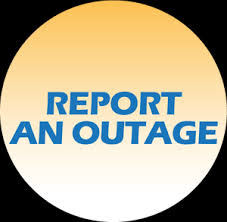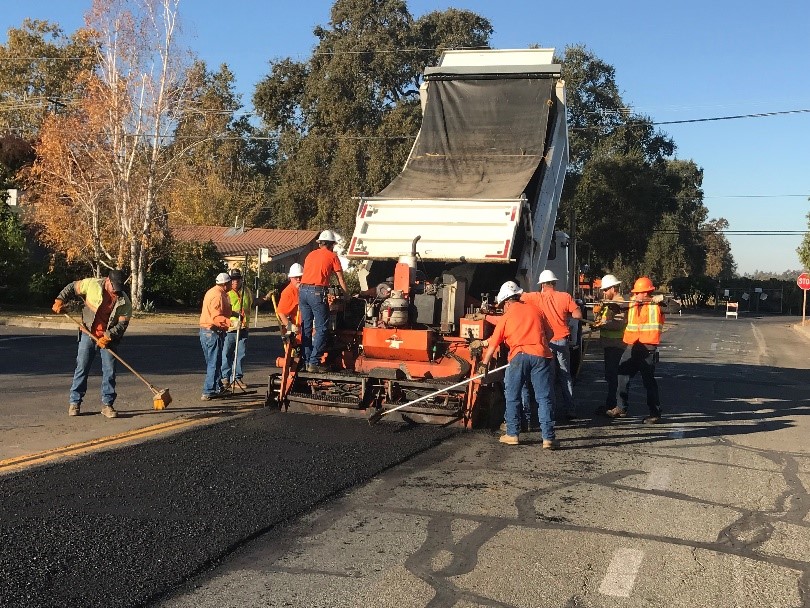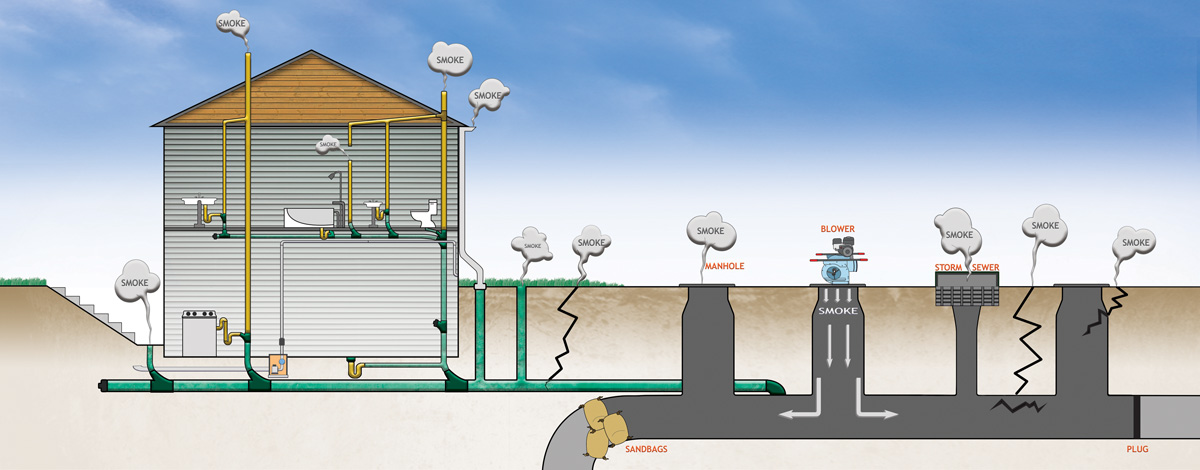Public Works Department

To report a broken water or sewer line or an electric outage during normal working hours, please call our customer service line at (530) 846-5695. If you are calling after normal working hours to report a broken water or sewer line or power outage, please call our hotline at (530) 846-3143. Crews are on standby to make repairs or restore power.
The Public Works Department is responsible for development and maintenance of the Gridley Municipal infrastructure. This includes design and construction of public streets (including sidewalks, street and traffic signs, and pavement markings), the water system (including production, treatment, storage and distribution), and the sewer and storm drain systems (including collection, pumping and treatment of sewage). Public Works also provides engineering review and inspection of public improvements in new development projects and in public capital and replacement projects.
Street Safety and Maintenance
Street Maintenance Crews replace regulatory, warning and informational signs, perform graffiti removal on public rights-of-way, c lear debris and obstructions (including removal of deceased animals).
lear debris and obstructions (including removal of deceased animals).
Street Sweeping
Street Maintenance Crews operate the City's street sweeper. The street sweeper routinely covers the entirestreet grid of the City on a weekly basis.
Engineering
Required engineering services include the administration of construction contracts, traffic safety, encroachment permits, and maintains and provides information to the public about infrastructure improvements. The City currently contracts for engineering services.
Boat Ramp
Street Maintenance Crews operate the City's Feather River boat ramp. The boat ramp is a restricted access location near the sewer plant that provides access to a stretch of the Feather River that is otherwise inaccessible.
Water Utility
Public Works Department staff maintains the City water system from production at the well fields and storage at various reservoir sites through distribution to City water customers. Duties include repair of leaking service lines by replacement from the main to the water meter, repairing damage to the main distribution system and maintaining the well pumps, water tower and booster pumps. Maintenance of water quality to meet state water quality standards is a priority.
Sewer Utility
Crews respond to service calls for blockage problems concerning the collection system and house service laterals from the main to the street or alley line. Collection system facilities (pumps, motors mains, lift stations and manholes) are serviced on a routine basis or as necessary. Treatment facilities are also maintained including sludge removal from the treatment ponds.
Contact Information
Public Works Director Ross Pippitt
685 Kentucky St.
Gridley, CA 95948
530-846-3631
publicworks@gridley.ca.us
Sanitary Sewer System Smoke Testing
As a part of our Healthy Sewer System Program, the City of Gridley will be conducting smoke testing of the sanitary sewer system in summer 2019 with the intent to periodically continue the program in future years. This year testing will begin June 17th and the testing location will be Sycamore Street north to Bridgeford Avenue and West Biggs Gridley Road east to the railroad tracks.
Smoke testing identifies locations where there are defects or improper connections in the sewer system, and is the industry standard and an efficient, cost effective way to locate and identify leaks and the source of storm water infiltration problems in the sanitary sewer system. The smoke manufactured specifically for testing is EPA endorsed, and is a non-toxic, non-staining substance that is considered to be harmless to humans, pets, food, and material items. The specific product has been used successfully for over 30 years throughout the United States.
Click here for an informative video on Smoke Testing
Smoke Testing FAQ’s
This year the California Rural Water Association along with their contractor American Leak Detection, Inc. will perform smoke testing in Gridley. American Leak Detection utilizes state of the art technology and has been providing accurate and reliable leak detection services since 1974. They have teamed with the City of Gridley Public Works Department. Together they have experience to complete this project successfully.
1. Why is smoke testing being done? Smoke testing is the industry standard and an efficient, cost effective way to locate and identify leaks and the source of storm water infiltration problems in the sanitary sewer system. The specific product has been used successfully for over 30 years throughout the United States. The smoke manufactured specifically for testing is EPA endorsed, and is a non-toxic, non-staining substance that is generally considered to be harmless to humans, pets, food, and material items.
2. Why is smoke testing important? Testing is important because each year, millions of gallons of storm water infiltrates sanitary sewers and can overload the system, pump stations and treatment plant. The sanitary sewer system is designed for only wastewater from homes and businesses to flow to the Gridley treatment plant. The storm water drainage system is a separate network of pipes channeling storm water into creeks and waterways. The infiltration of storm water in any amount into the sanitary sewer system can cause and contribute to the overflow of untreated wastewater during storm events and potentially results in environmental and property damage.
3. How is the smoke testing conducted? The smoke testing process involves isolating manageable sections of the sewer system and then blowing smoke through that section of the sewer system. If there are any defects in the main sewer pipes or private sewer laterals serving individual homes, or if there are illegal storm drain cross connections, the smoke will rise to the surface and reveal these problems. American Leak Detection will carefully document their findings and assist the City in notifying, if necessary, individual property owners as to the results.
4. As a homeowner, what do I need to do to prepare for smoke testing in my area? Water can evaporate from the drain traps of unused plumbing fixtures. To the extent possible, property owners should pour water down all drains of plumbing fixtures that are not regularly used. This will ensure that the P-traps are full to prevent smoke from entering the house through their sewage drainage system within the structure. P-trap refers to the shape of the drain pipe which holds water preventing air, odors and smoke from entering the residence.
5. Is the smoke harmful? What should I do if smoke comes out of a plumbing fixture in my house? Although the product is generally considered to have no adverse health effects, individuals with pre-existing conditions, such as emphysema or other heart/lung problems should take special precautions to either vacate the area during the test period, or if not possible, keep doors and windows open so that if, on the rare occasion, smoke does enter, it will dissipate rapidly. If you see “smoke” in your home, open windows for ventilation and notify the crew in the area.
6. Do I need to be home during smoke testing? There is no need to be at home, but it may be helpful in the event that areas need to be ventilated.
7. How long are the smoke tests? The actual test on each home will take about 10-15 minutes. While testing, smoke may be seen around manhole covers, storm drains, roof vents and areas of defects. Smoke will not enter the interior of a home or business if all the plumbing is installed properly and is in good repair
8. What about pets? The smoke is not harmful to pets. The smoke used is a non-toxic substance that is harmless to humans, pets, food, and material items. If smoke does enter the building, it will clear in a few minutes with proper ventilation.
9. What do I do if smoke does enter my building? If smoke does enter the interior of homes, windows and doors should be opened as it will usually clear in 15-20 minutes. If residents are present during the testing, they should inform a testing crew member if smoke has entered the home.
10. Can smoke clog the sewer? There is no way smoke can stop up a sewer. The smoke is made up of a vaporous substance similar to fog.
11. What happens if you find a bad sewer or lack of traps in a building? The City will determine what steps are necessary to remedy any problems.
12. Are Police and Fire aware of the smoke testing? City of Gridley Police and Fire Departments have been notified, and City Hall has information on the locations and dates of areas to be tested. The contractor will update Police and Fire on a daily basis with the locations for each smoke testing period.
13. What happens after the test results are analyzed? After all the data is collected and organized, the Public Works staff will begin notifying property owners if there appears to be a problem with either their sewer lateral, possible storm drain cross connections, or sewer leaks inside the structure. Staff will work with each property owner to help them understand the issues and further, to make recommendations as to how these problems might be resolved. Simultaneously, if there are detected problems within our sewer system, the City will endeavor to have these repaired in a timely manner.
14. If I have questions not answered here, who do I contact? If you have any problems or concerns not addressed by this notice, email Carmen Santana at csantana@gridley.ca.us with your address, phone number and specific concern or question and you will receive a timely response.

